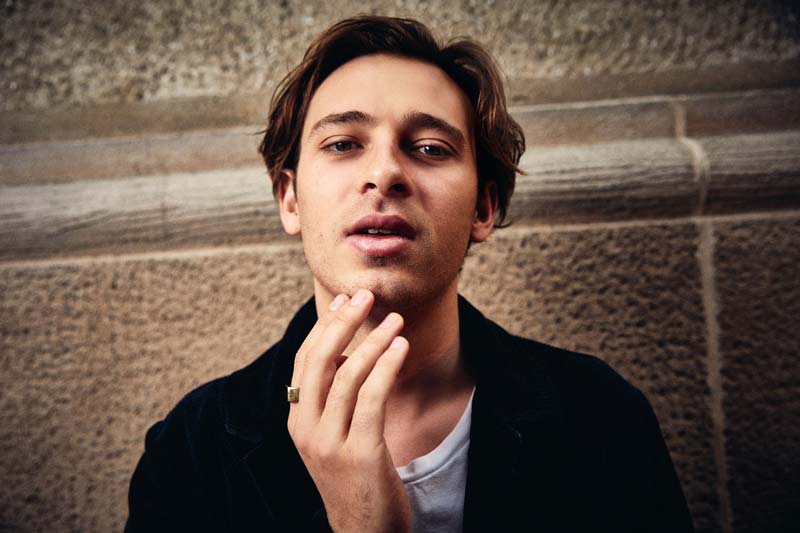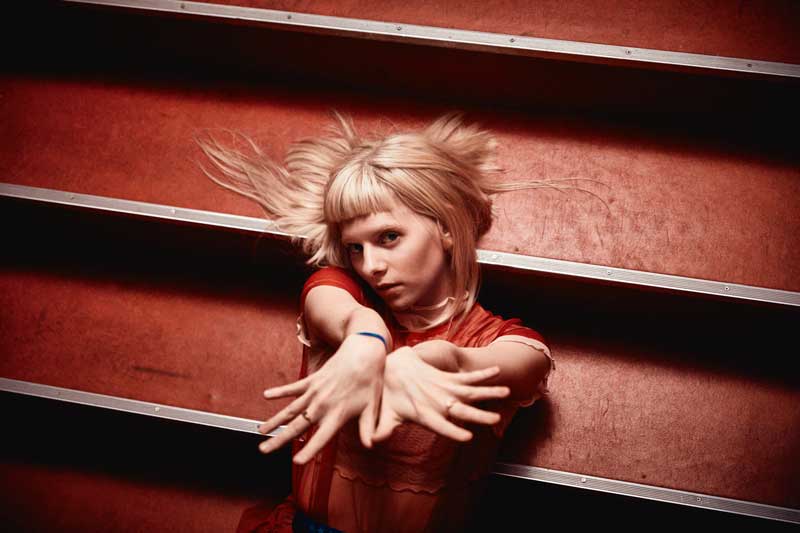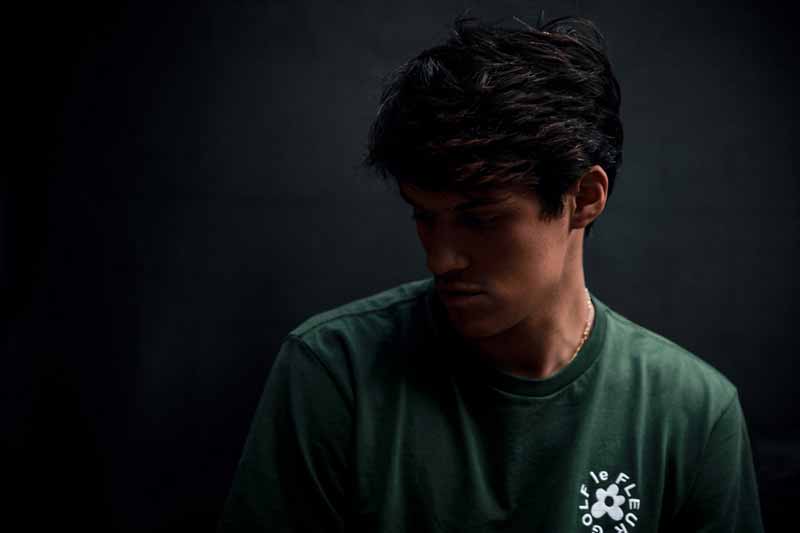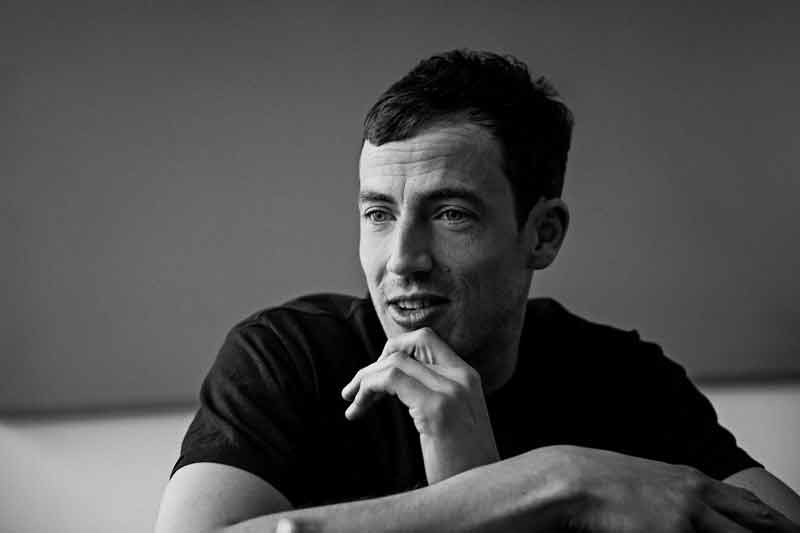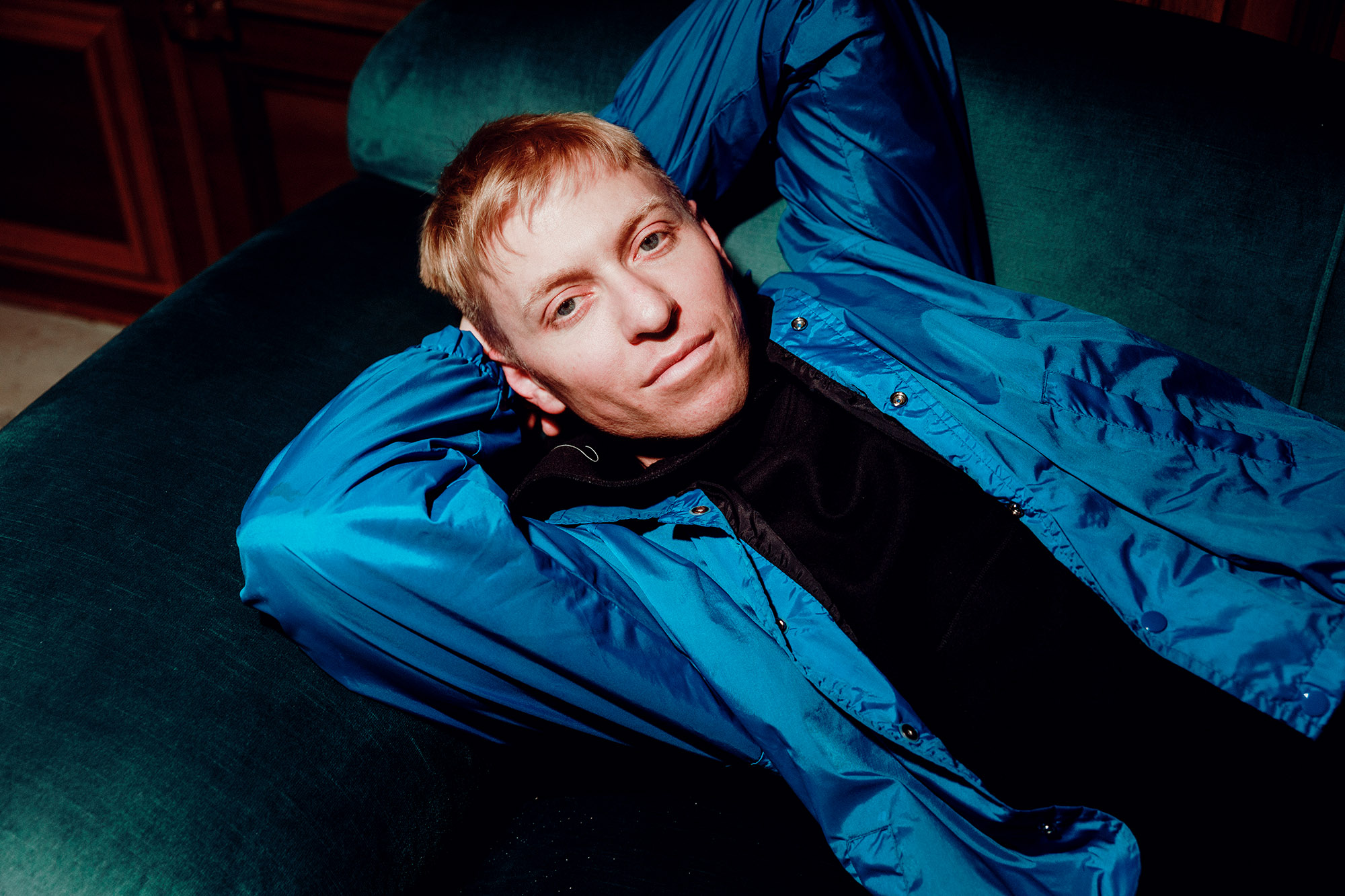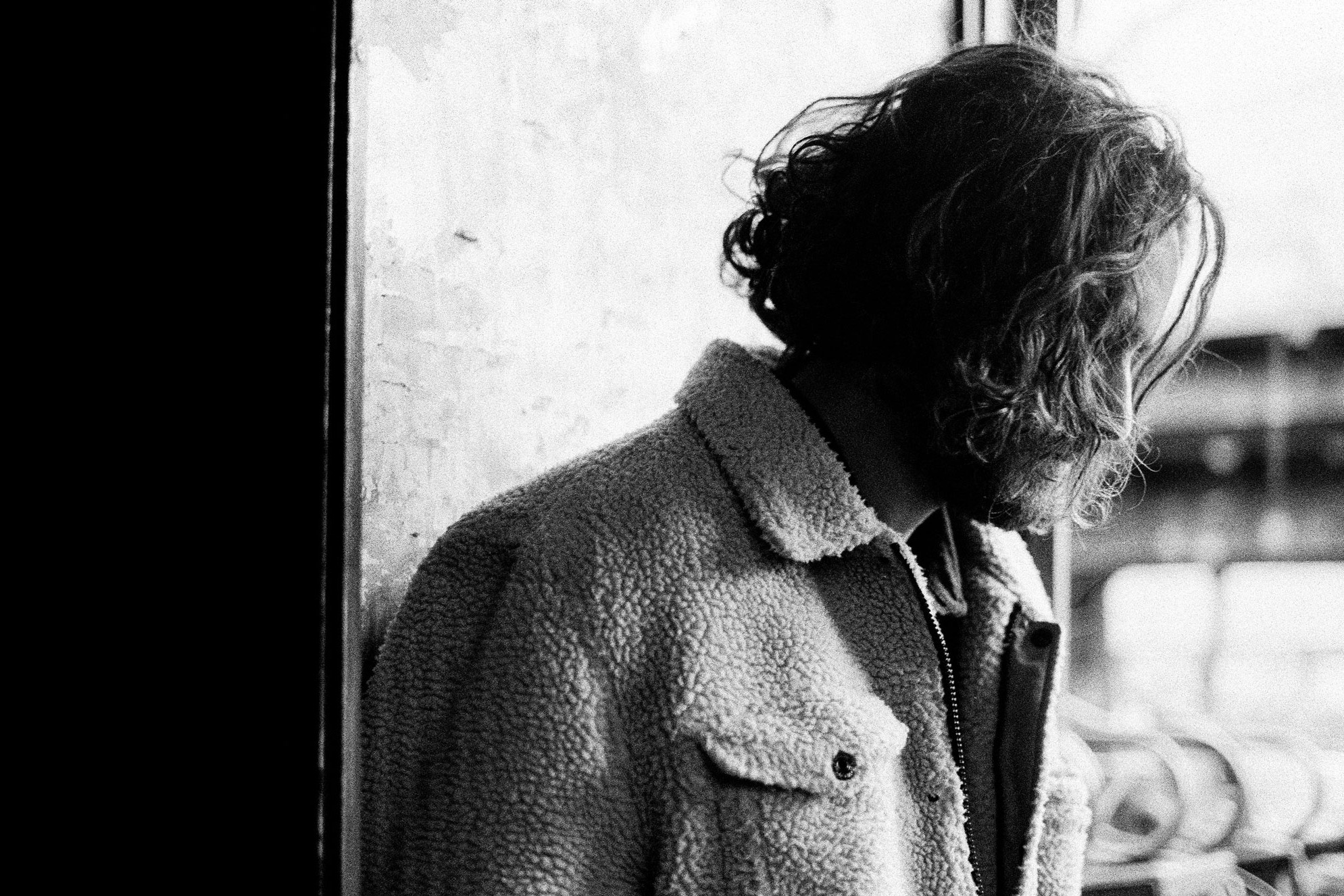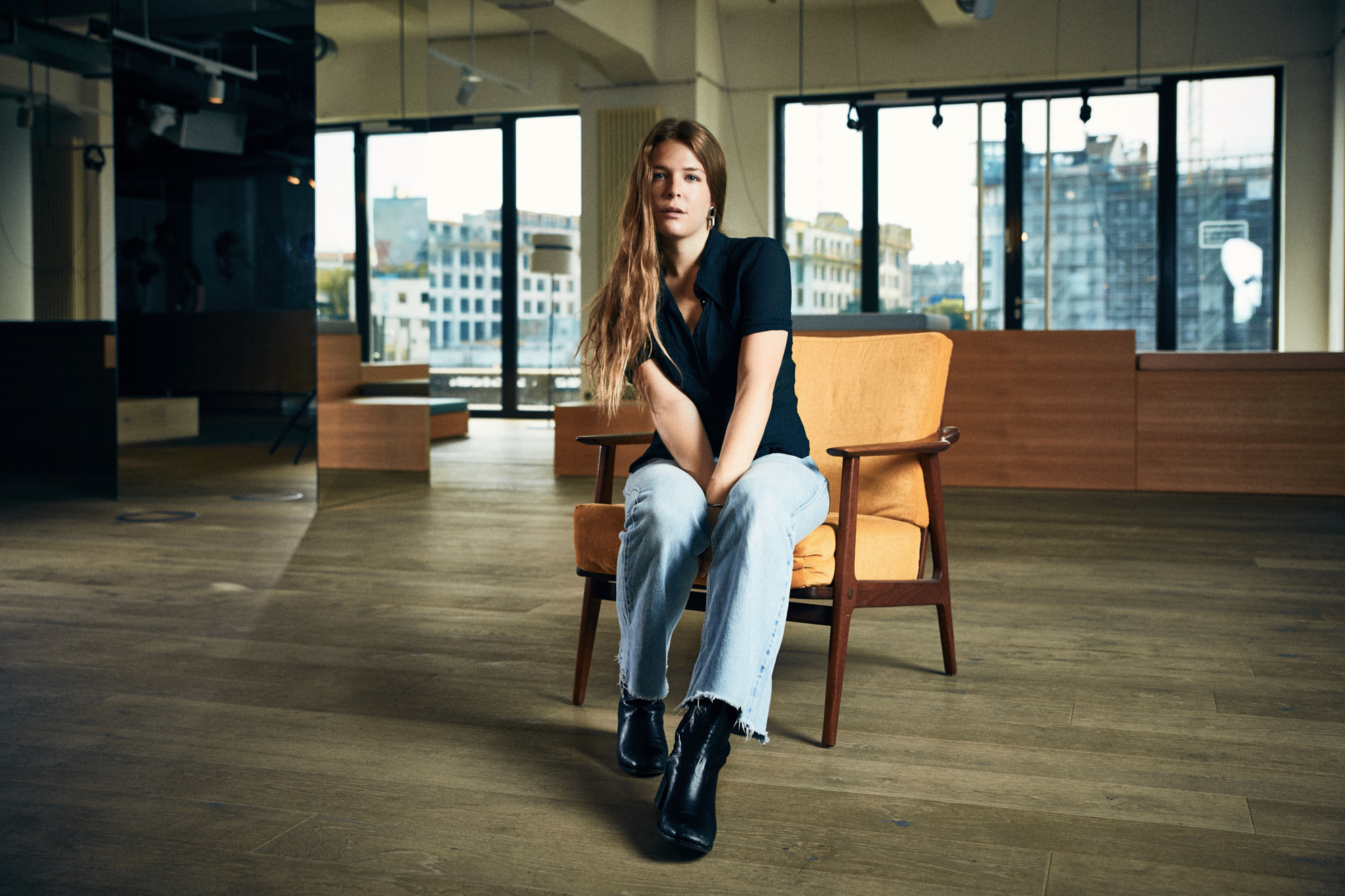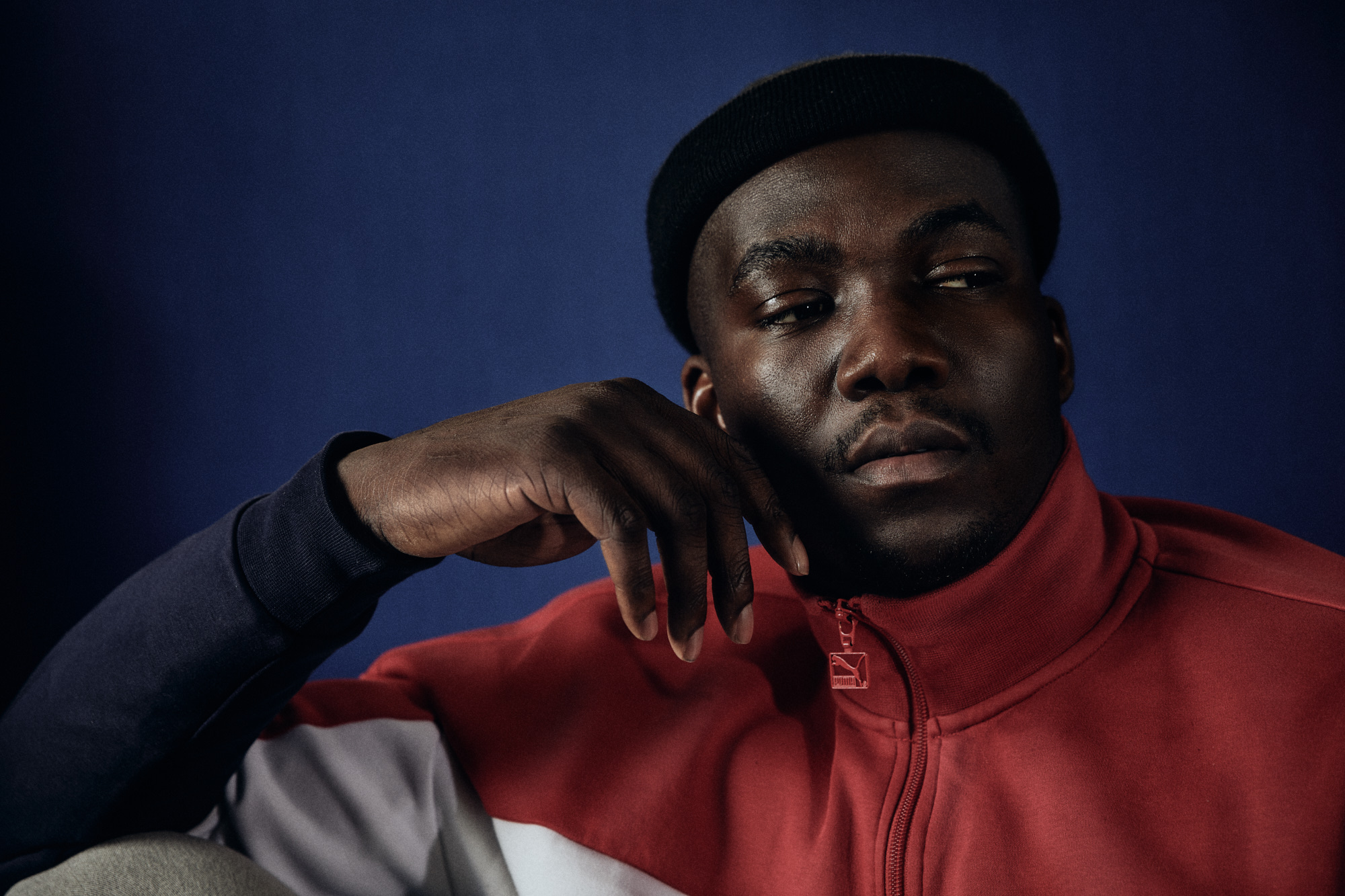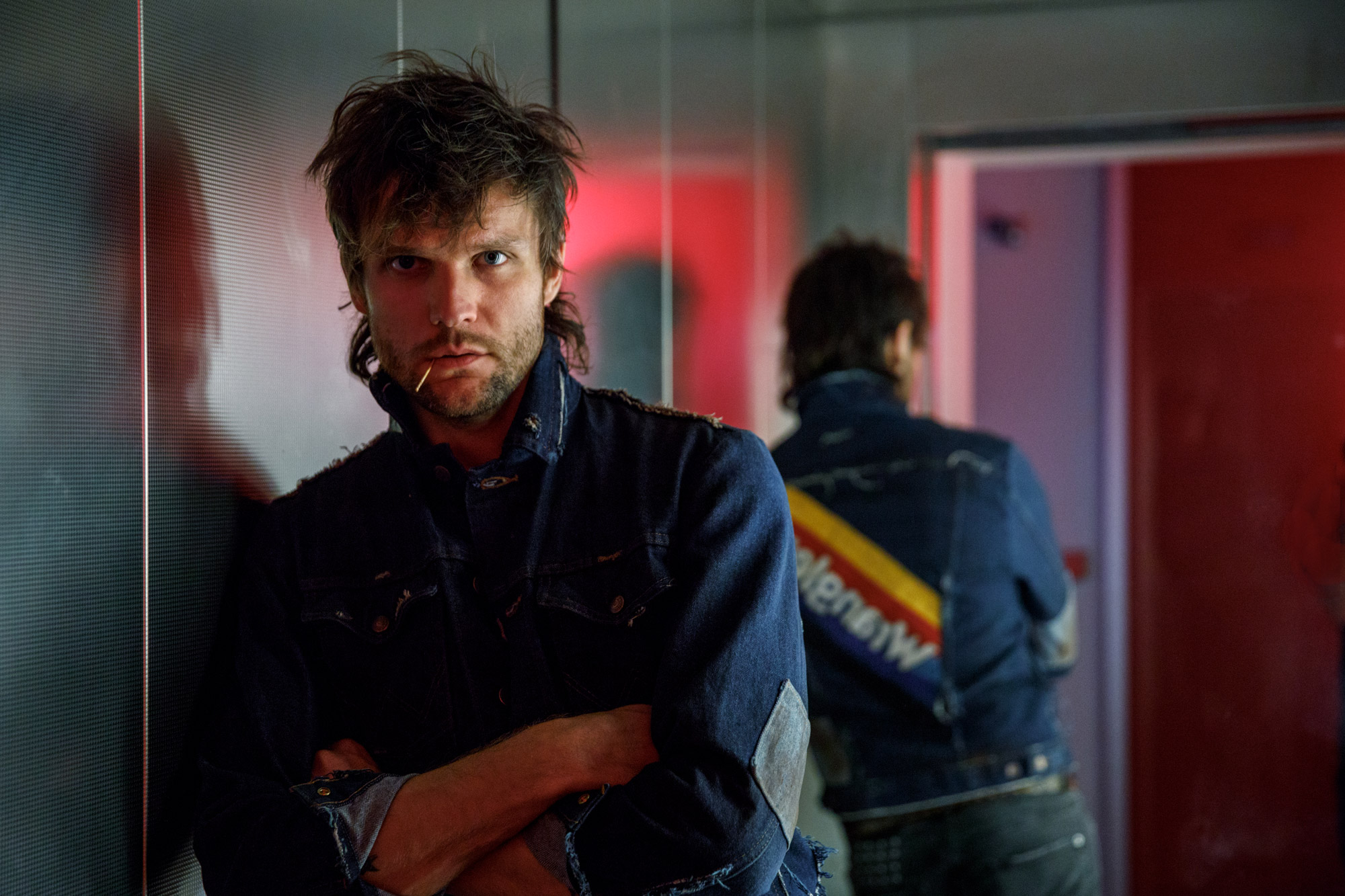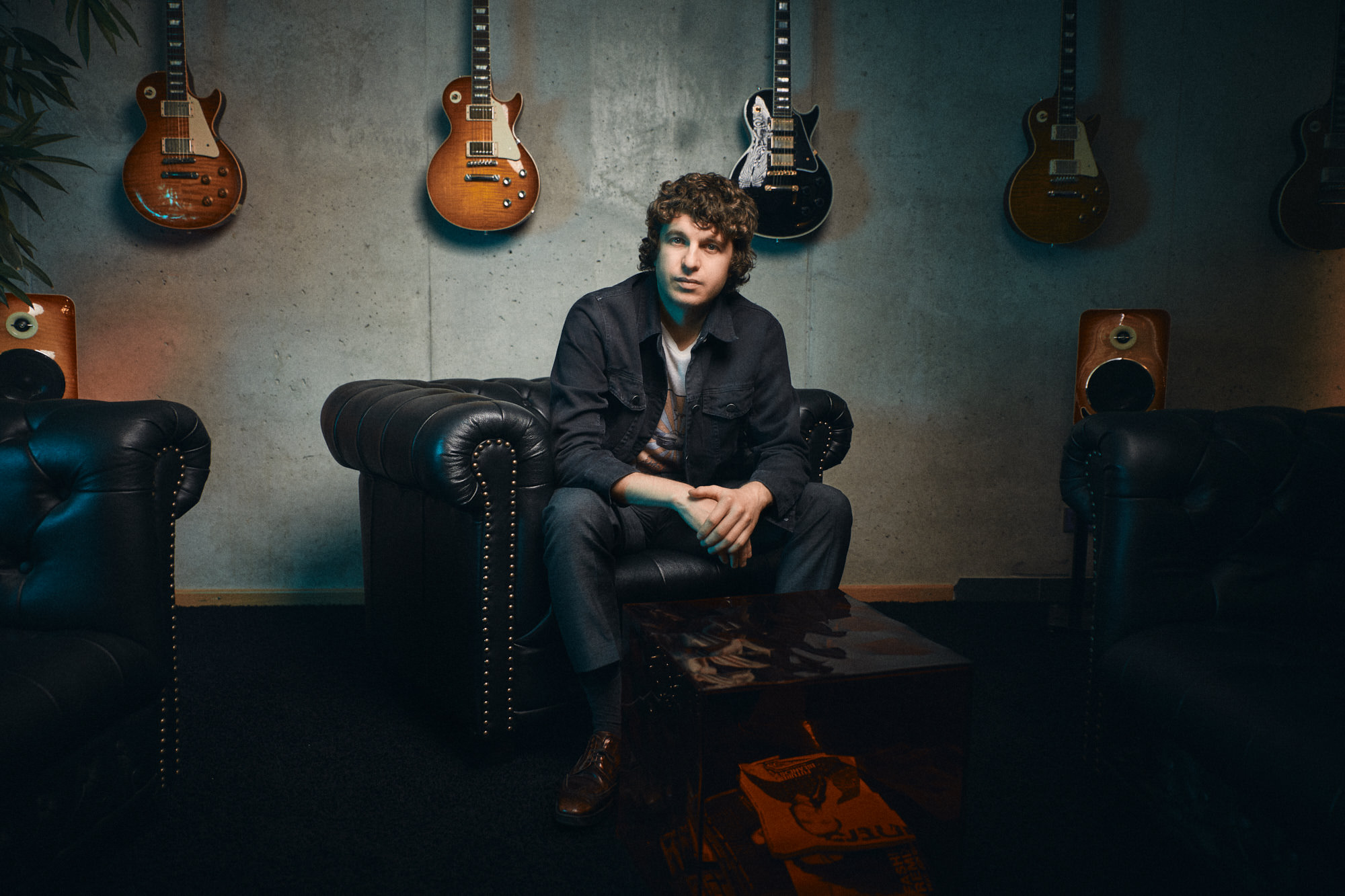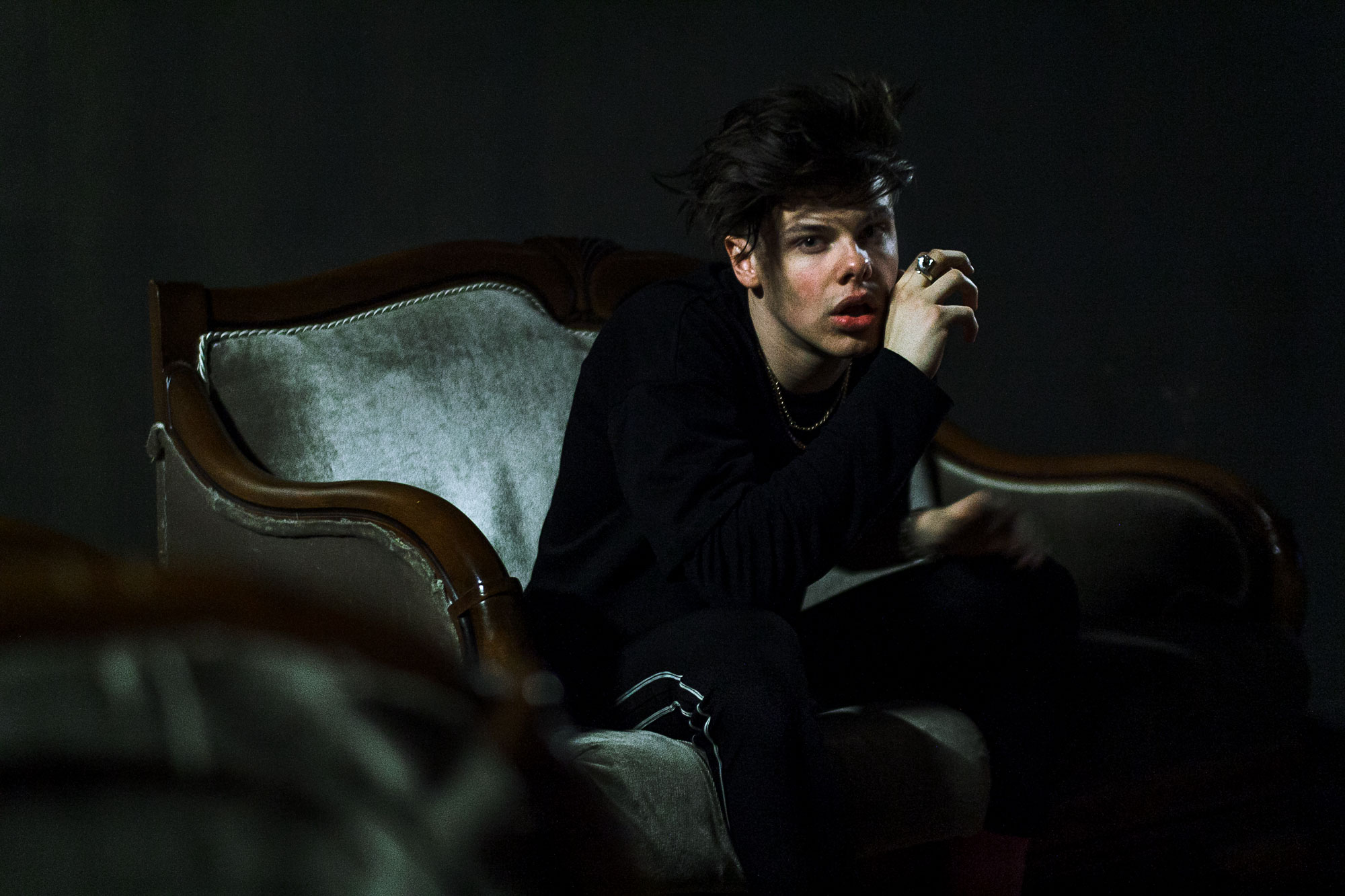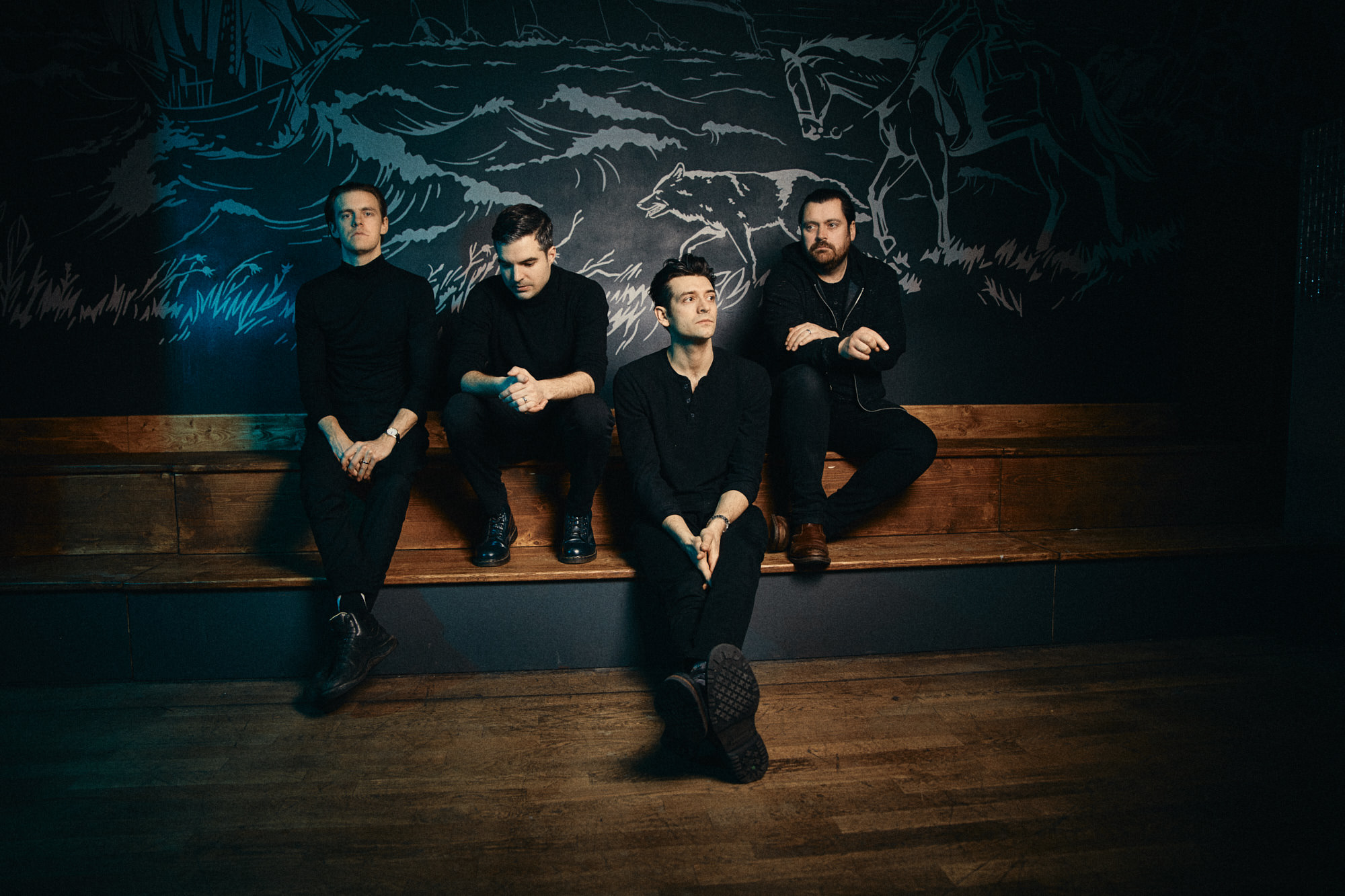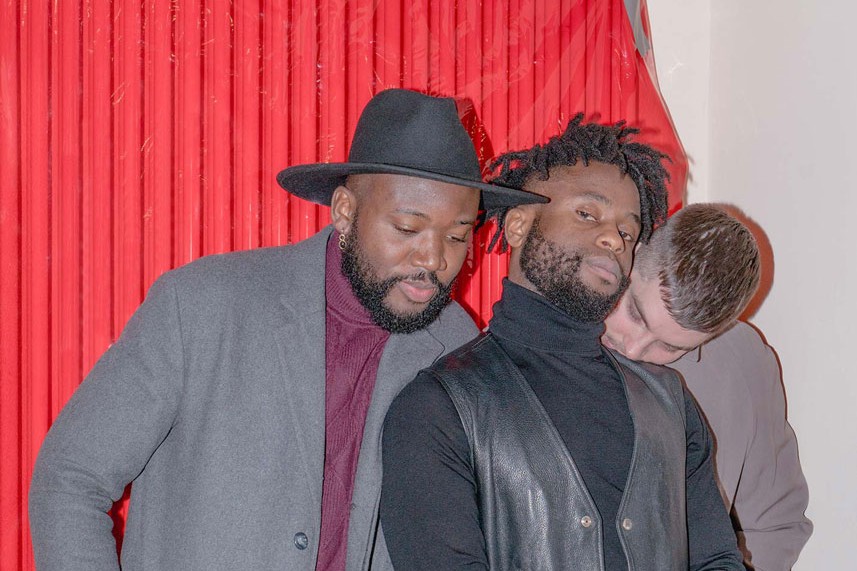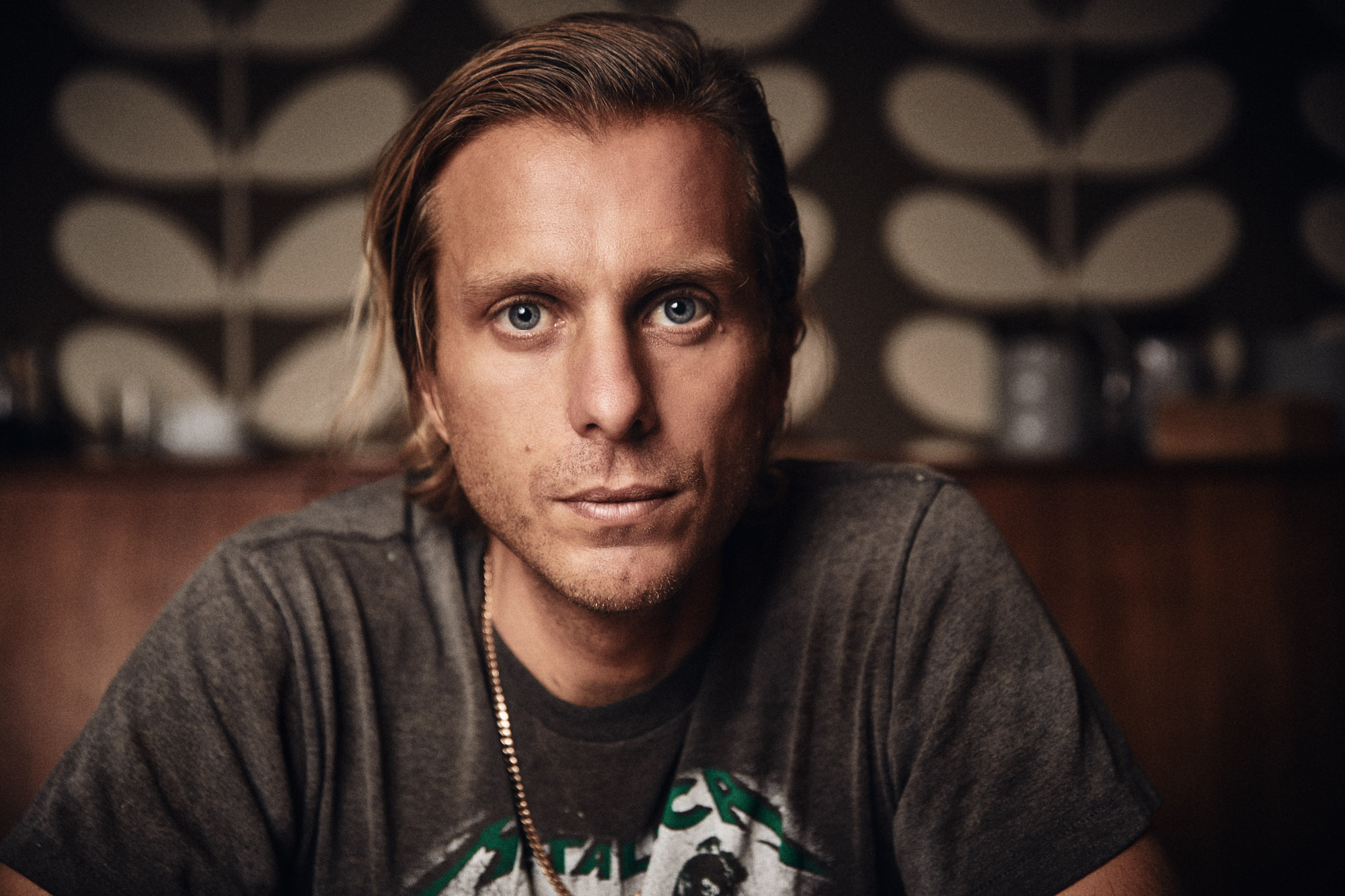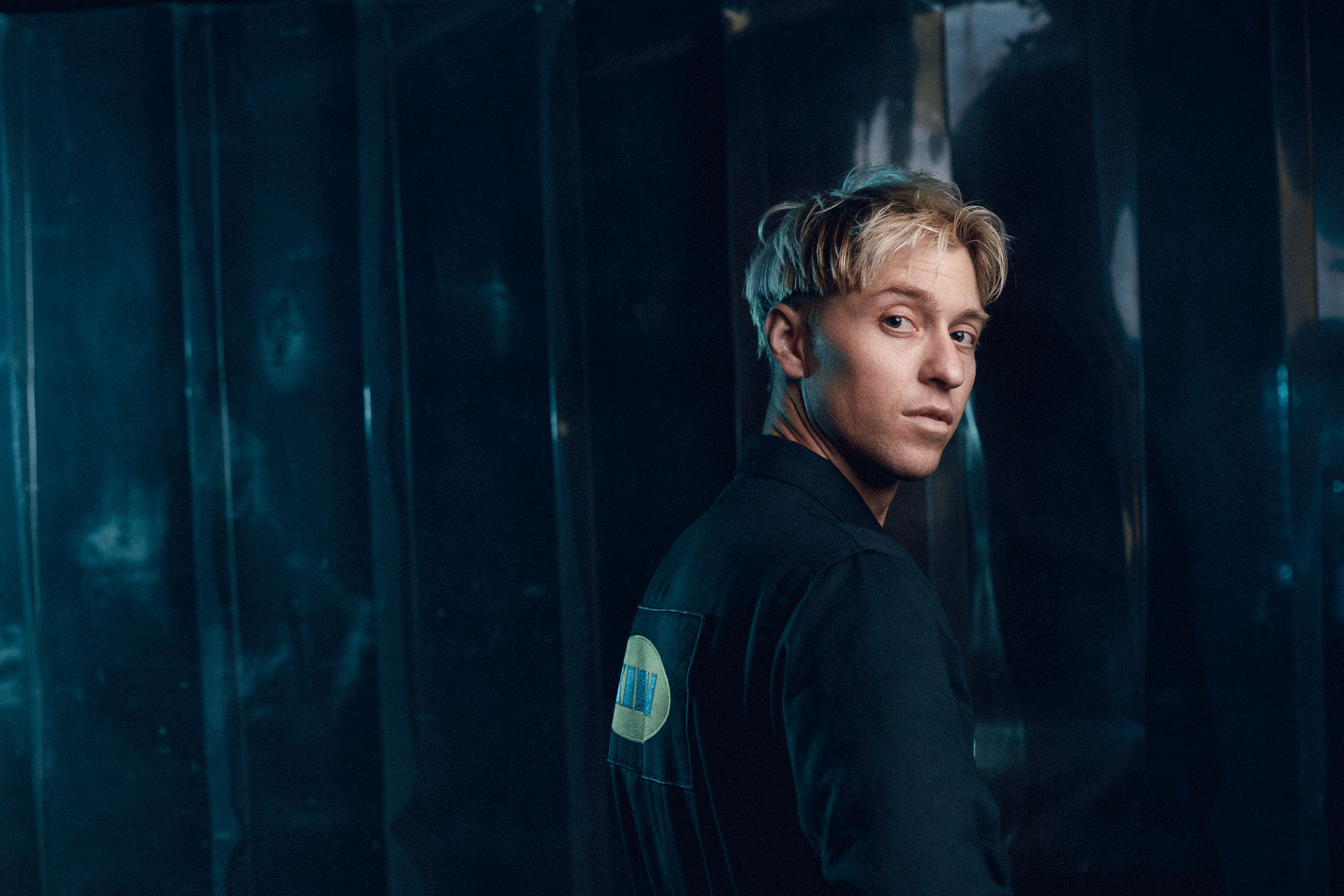Interview — Beranger
With Great Passion Comes Great Drama
Awakening power, dark desire, chaotic liberation—the topics of two-man band Beranger are as thrilling as their sound. Yet unknown by now, meet two hopefully soon-to-be music giants in an intimate interview.
25. Oktober 2020 — MYP N° 30 »Community« — Interview: Katharina Weiß, Photography: Frederike van der Straeten

We meet a lot of artists, but this label is one we rarely give out to uprising musicians: “Beranger,” consisting of Beranger Gras, a classical pianist from France, and Todd James, a grunge drummer from Australia, seem to have the potential to conquer the world’s biggest stages.
The two guys met as buskers in the streets of Berlin, and even though they are still at the beginning of their career, when it comes to record sales or social media followers, they are already royalty among the fans of Mauerpark music—a popular open stage, beloved by Berliners and visitors, which draws thousands of people to its free live shows every year.
Trust us: Check out some of their music. And if you like it, continue to find out more about the artists‘ vision in the following interview.
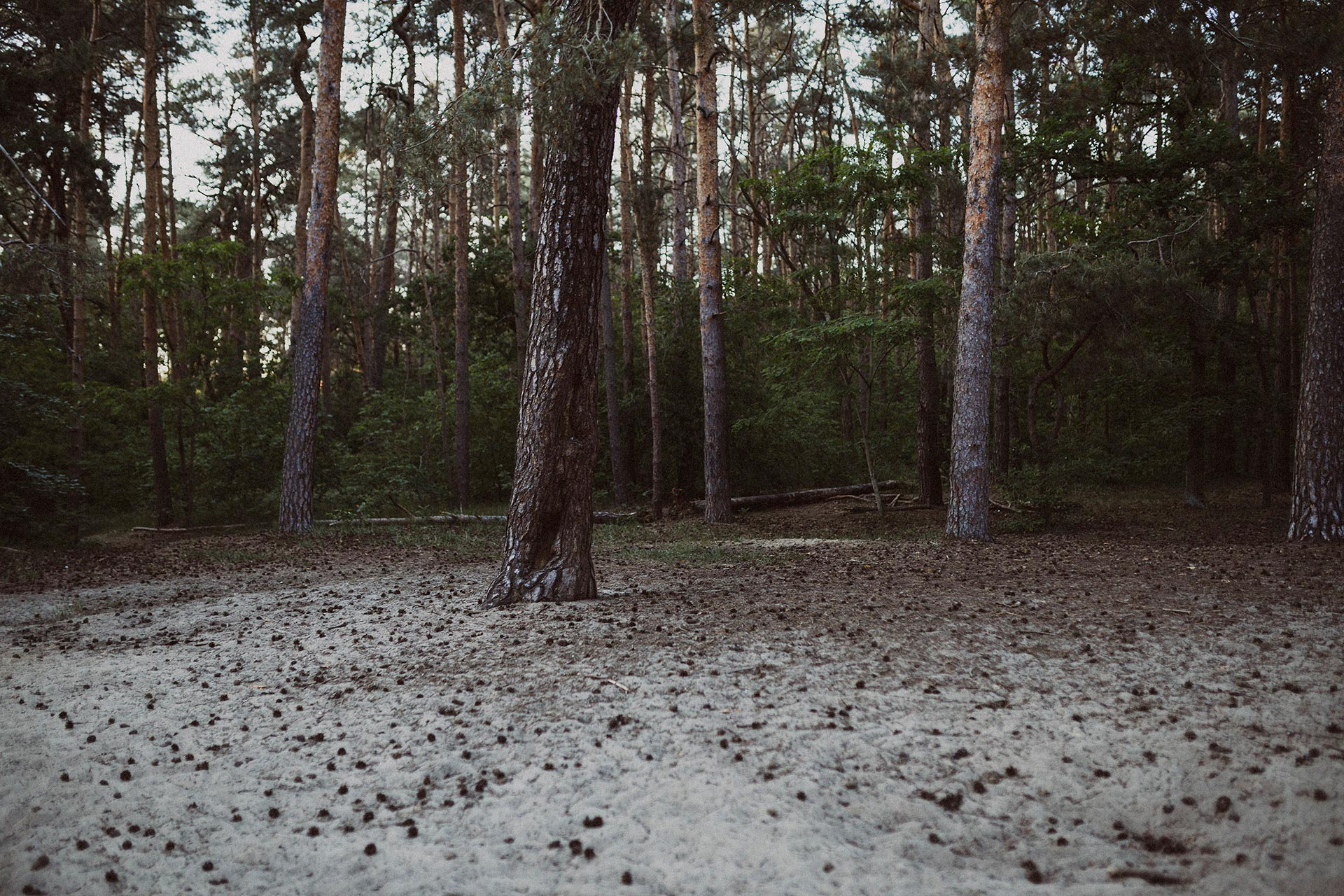
»We have one goal in common: taking people to another world.«
Katharina Weiß:
Many interview questions start with asking the showbusiness newcomers where they come from. So, I’m asking you: Where do you want to go?
Todd James:
Do we both have the same vision?
Beranger Gras:
Ultimately, I think Todd and I have the same idea: getting further with the music, playing for more people, having an awesome life and awesome experiences. But more than me, Todd is driven by intimate human connections and one-on-one adventures, whereas I am fascinated by huge crowds and by getting large amounts of people to chant together.
Todd James:
But we have one goal in common: taking people to another world. I am fascinated by shows like “Cirque du Soleil,” where you enter completely different spaces and you can really escape reality. If we have the chance, both of us would like to create a similar vibe.
Beranger Gras:
I would say I also draw a significant amount of inspiration from historic imagery like that of the French Revolution. A very bloody process but also something resulting in mankind ultimately standing up for itself in some way. I kind of want to mirror this feeling of liberation and freedom (albeit without the bloody connotation) by creating epic anthems that inspire people to stand up and make the most of their lives. Not walking the path the most have traveled. I find the whole revolution imagery has so much character on a stage, it can be represented by a guillotine spraying flowers into the audience, instead of the blood of the beheaded. It’s like turning something very dark into a positive uplifting feeling.
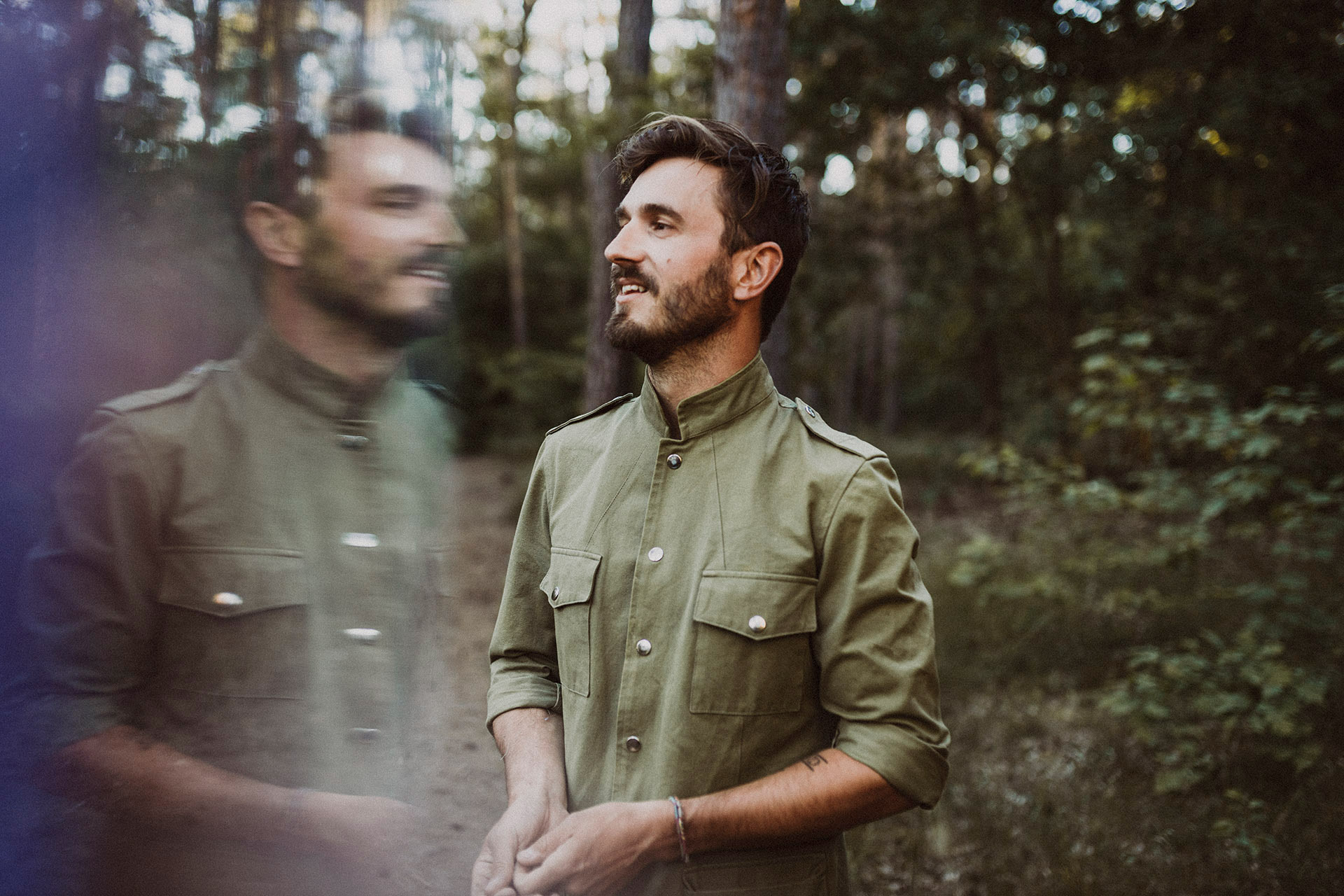
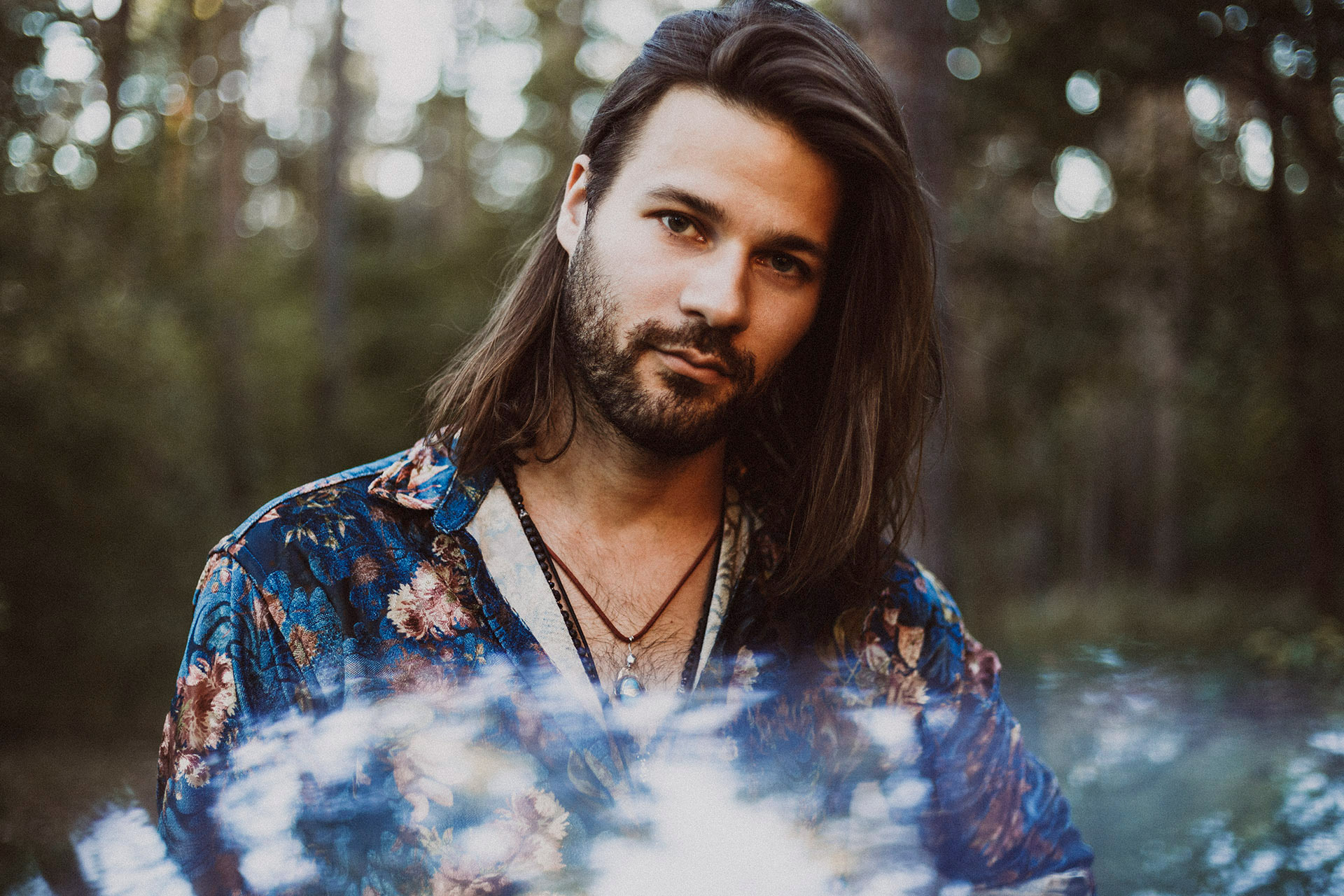
»I like it when he doesn’t realize what he is singing.«
Katharina Weiß:
There is a huge tension in your songs. Both the melody and the lyrics tell abstract tales of almost Shakespearean magnitude: awaking power, lonely war, dark desire, chaotic liberation—are these sets of feeling taken from your life experience?
Beranger Gras:
In my early teens, due to my father’s job, we moved from California where we lived back to Bordeaux in France. There I studied English-language literature. That’s the time when I started to sing, so I felt at home in the English language and with authors like Shakespeare, Toni Morrisson, Joseph Conrad, from the beginning on. I also loved cinematic atmospheres and this love for the dramatic reflected my personal struggle with the established world of the classical conservatory I was getting my education from. I started to play the piano very hard very rhythmically, and my style rapidly changed to a point where it became an outlet for all the hardships I felt with regard to the classical studies I was supposed to do.
Todd James:
He is responsible for the lyrics. But I like it when he doesn’t realize what he is singing. Let me explain: A lot of our songs are written from improvising, so sometimes the lyrics come to him without him thinking about it. But often it makes a lot of sense in the context of what he’s going through at the time. Sometimes these lines are brutally honest, which I really value.
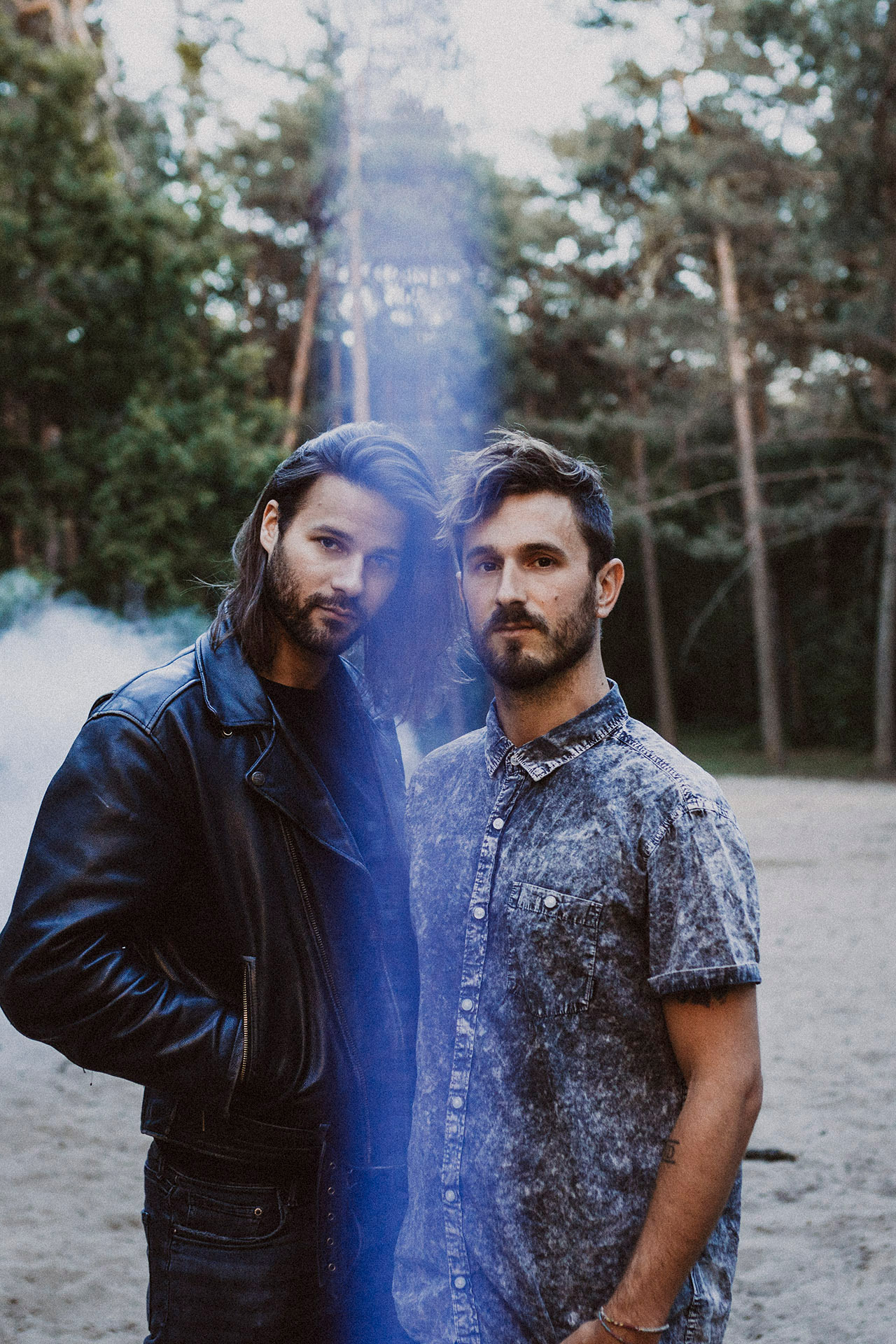

»A lot of his best songs come from periods where he is going through something really bad.«
Katharina Weiß:
Along with the energy the two of you generate when playing live, there is also a touch of violence or physical roughness. There are not many songs that are clearly identifiable as love songs. And the lyrical, romantic you is often spoken to with lines like: “Is it something that I said I’d do / Another bullet in my head for you.” or “A prisoner, a prisoner / Right inside her head / Wanting her, loving her / Stuck inside her bed.” Why is this kind of love so fruitful for your artistic inspiration?
Beranger Gras:
A lot of my non-artsy friends share an underlying core belief in a Disneyworld concept of finding the perfect life partner who will fulfill all your needs and have the life you always wanted with you. Growing up I learned that this myth is just one concept amongst many others and there are numerous alternative paths. However, due to the movies I watched and the way I was brought up, I feel this fantasy is still very much ingrained in me. A part of this is the notion: With great passion comes great drama.
Todd James:
In my opinion, a lot of his best songs come from periods where he is going through something really bad.
Beranger Gras:
Or something really good. It changes.

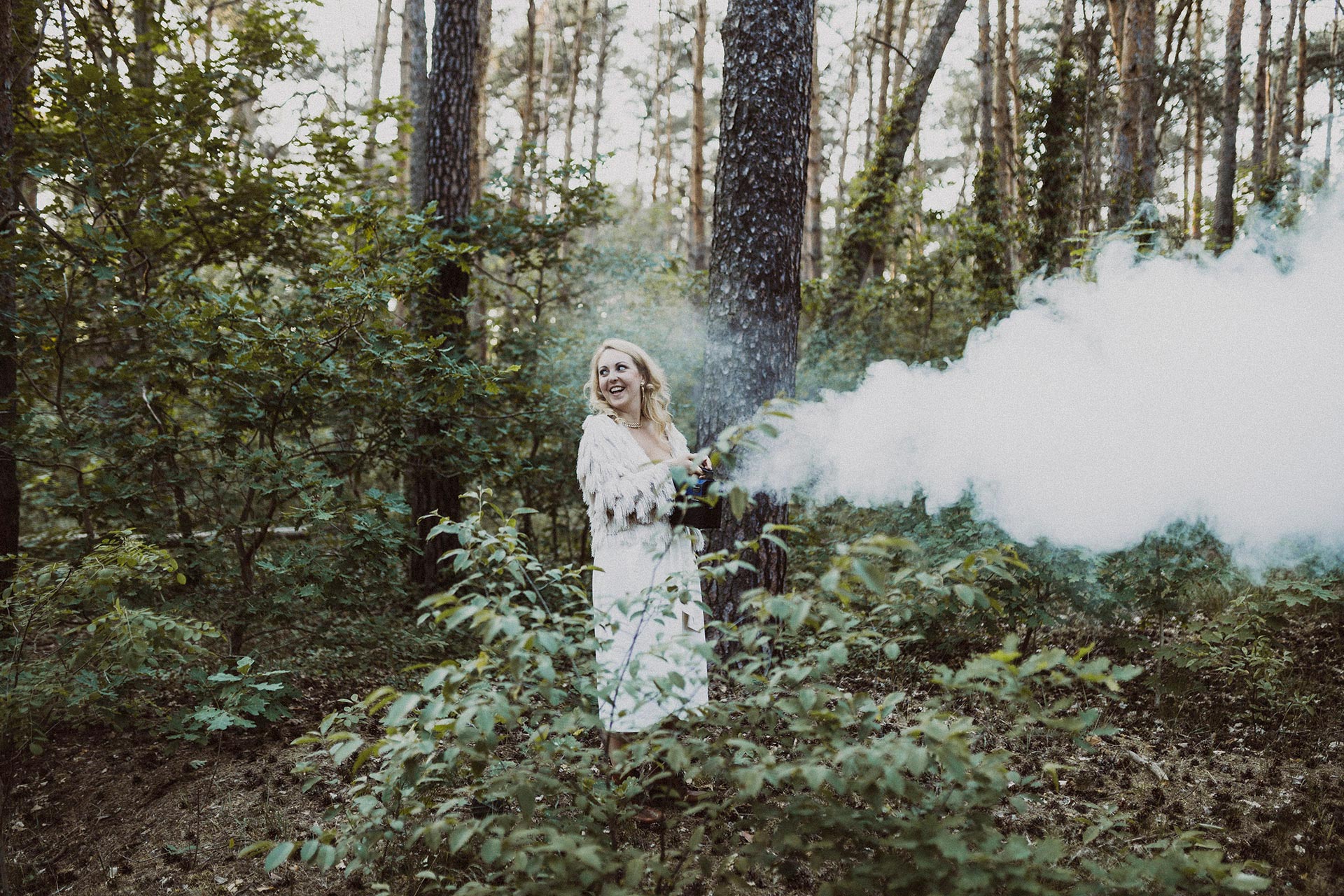
»From a priest to a topless drummer in seconds—I love it.«
Katharina Weiß:
The motives of your sound are also reflected in your style. A very impressive combination was the German “Talent des Monats/Musikdurstig” show where Beranger was wearing a red and gold uniform jacket, while Todd presented a dark shirt with a clerical collar. How are these outfits developing?
Todd James:
He was always into flamboyant jackets and uniforms. I am happy with a black shirt. But sometimes, like with the clerical collar, I mention something as a joke. And then he pushes me to do it.
Beranger Gras:
Then midway through the show, he gets topless and you can read a tattooed “Fuck,” and a smiley face on his chest. From a priest to a topless drummer in seconds—I love it.

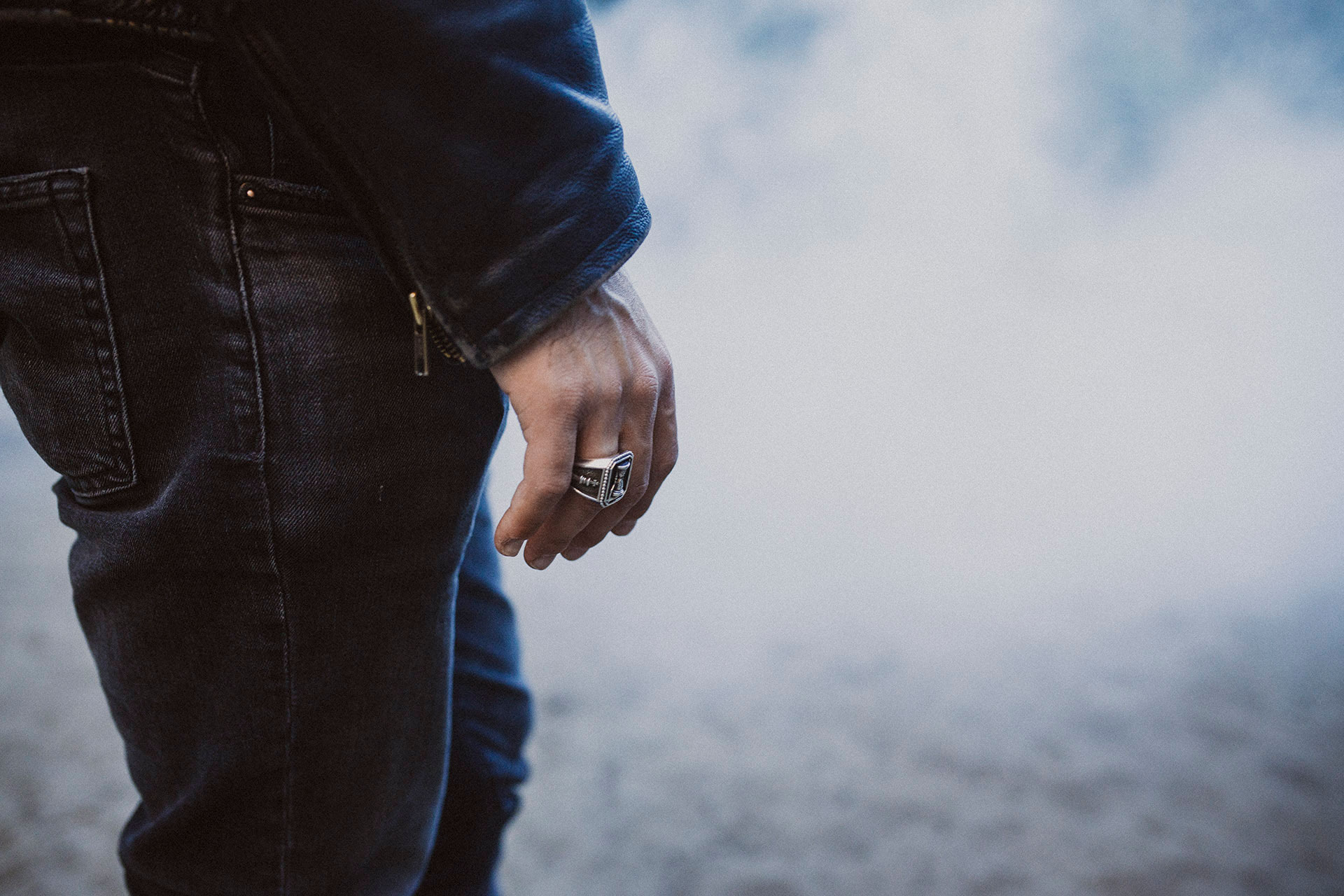
»Our personalities are similar to our instruments: I need to bring him down to earth. And he needs to bring me further up.«
Katharina Weiß:
Prejudices say that singers are often prone to vanity and in need of constant attention, while ground-fixed instruments like the drums draw more pensive and temperate artists to them. What do you think about this perspective?
Beranger Gras (throws his hair theatrically behind his shoulder):
Totally false, I don’t need attention.
Todd James:
Some people call Beranger a diva.
Katharina Weiß:
Who is “some?”
Both (laughing):
All of them.
Todd James:
Jokes aside, our personalities are similar to our instruments: I need to bring him down to earth. And he needs to bring me further up.
Beranger Gras:
Todd dives into music more from an atmospheric approach. I am more into making powerful statements and concrete concepts. We come together through a common craving for live music and the spontaneous connections we form between us and the audience. At least from the feeling we get from the audience, this seems to be quite unique.
Todd James:
I discovered him playing on the streets of Berlin under the name of Beranger. For quite some time I did not know that this was his first name, and I liked the sound. When he asked me later after we had formed the duo, “What would you change our name to?”, I was fine with staying with Beranger. I don’t need to be the center of attention anyway. I like to see myself as a joke. If I have to wear silly outfits and make myself stupid tattoos, I remind myself to not take life too seriously. We both have serious Yin and Yang vibes in common, and so far, the balance seems to work this way.
Beranger Gras:
Also, in private situations: He needs a lot of time for himself and I am more of a social bird. We complete each other in interesting ways.

»We learned that conflicts have to be normalized.«
Katharina Weiß:
Being in a band with just two people forms a special bond because you can’t turn to someone else. How have you learned to live with each other’s flaws?
Todd James (laughing):
After living together during the lockdown, I honestly don’t know.
Beranger Gras:
We have to accept our flaws not just as close friends, but also as creative partners. We are both in this together. And, of course, we often differ. Every band has artistic or personal conflicts like that. But you still always know that the other person has your back, it doesn’t matter if there is a conflict. We learned that conflicts have to be normalized. So, I think on top of it all, the solution is communication. Being able to say it in such a way that the other one does not hold a grudge against you for it. And knowing speaking your mind honestly is always going to be accepted and respected within the band.
Todd James:
We are often each other’s therapists. I see him in a certain phase and tell him: “Ah, it’s that issue, I’ve been there.” Due to the fact that we are mostly each other’s opposites, it is rare that neither of us is able to uplift the other.
»This is a life I want: playing the drums with people dancing outside in the sun.«
Katharina Weiß:
What childhood memory that is connected to music does make you nostalgic?
Beranger Gras:
I feel nostalgic about everything that’s in the past. I romanticize it a lot, even though I know it is most likely a deceitful practice or it is to no avail. Same with a lot of my past relationships. I also idealize things very easily.
Todd James:
A nostalgic time for me was when I was first inspired to play street music. I was a young child on holiday with my parents in Darwin Australia. It was an outdoor market and there were two street musicians creating a rave-like atmosphere. The street band was a duo: a drummer and a didgeridoo player. The music was very intense, like fast techno. As I was an aspiring drummer, I couldn’t think of anything better than this. I just thought that this is a life I want: playing the drums with people dancing outside in the sun.
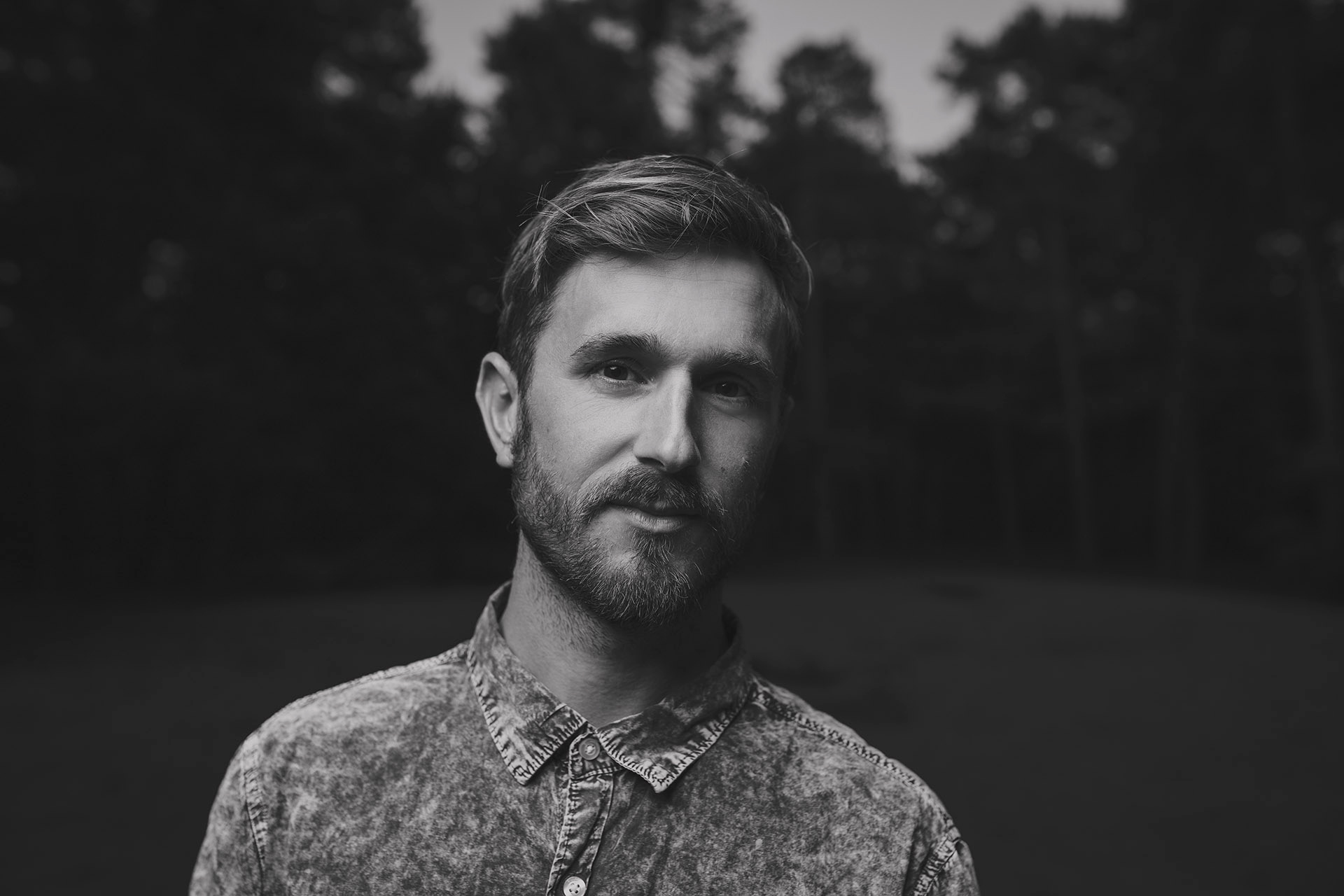
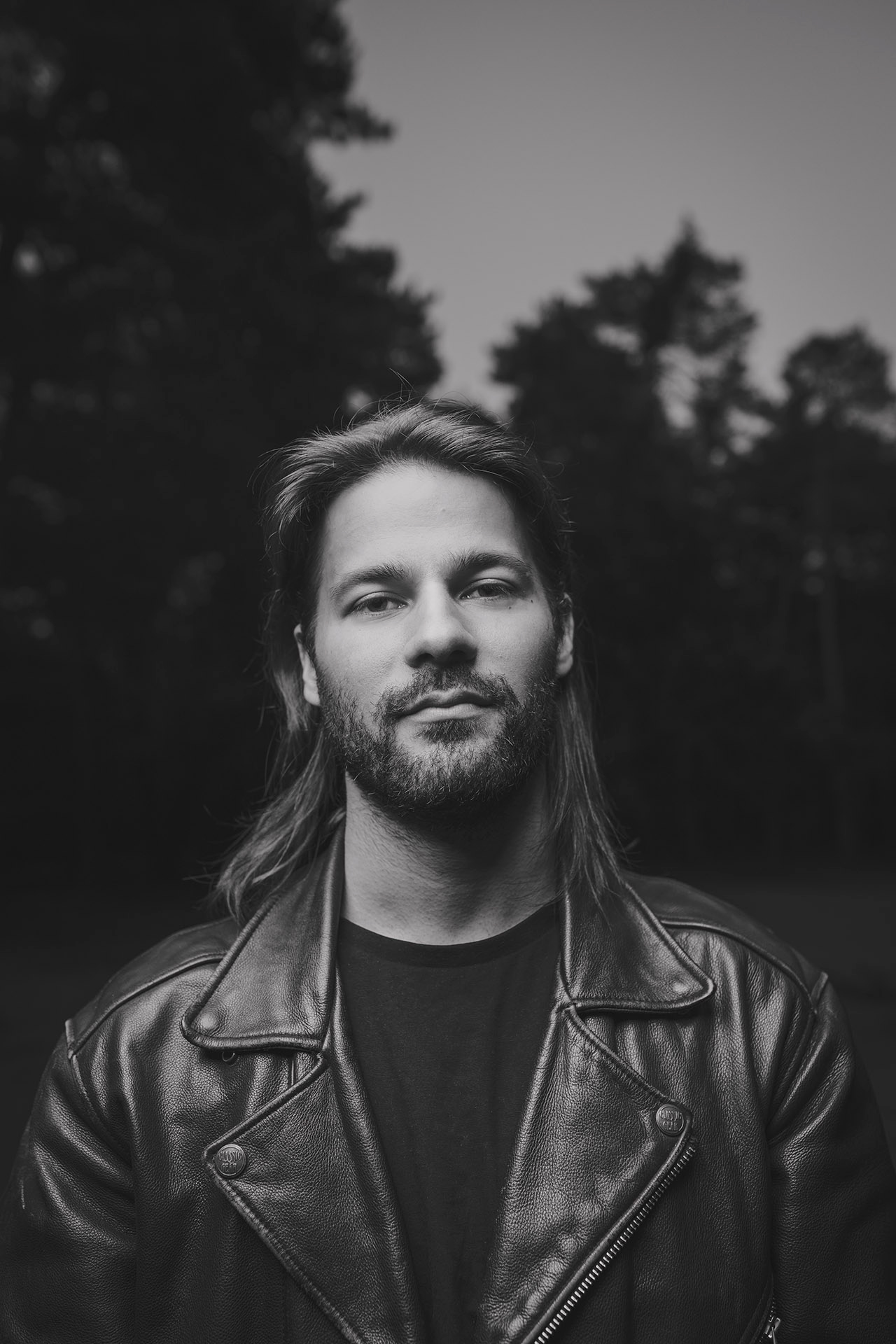
Beranger Gras:
These days I’m getting nostalgic about us playing in Mauerpark or in the streets of Brighton. Honestly, I really become nostalgic about everything. When I was just playing the piano and singing back then, it took a longer time to gather a nice crowd. When I met Todd, the crowds immediately got bigger because the expression of the music just got stronger and more extreme. It kind of felt like stepping on the gas pedal for the first time.
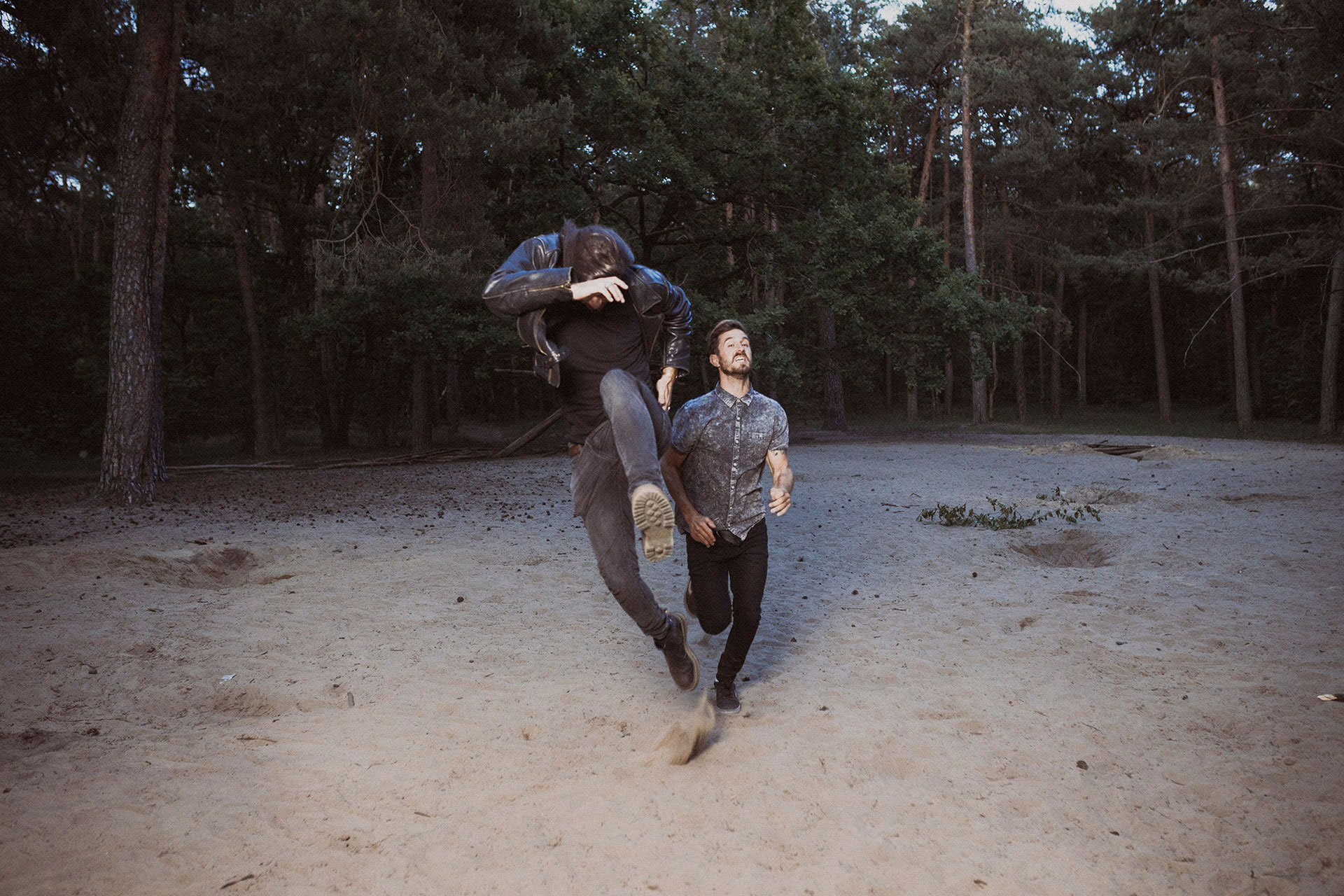
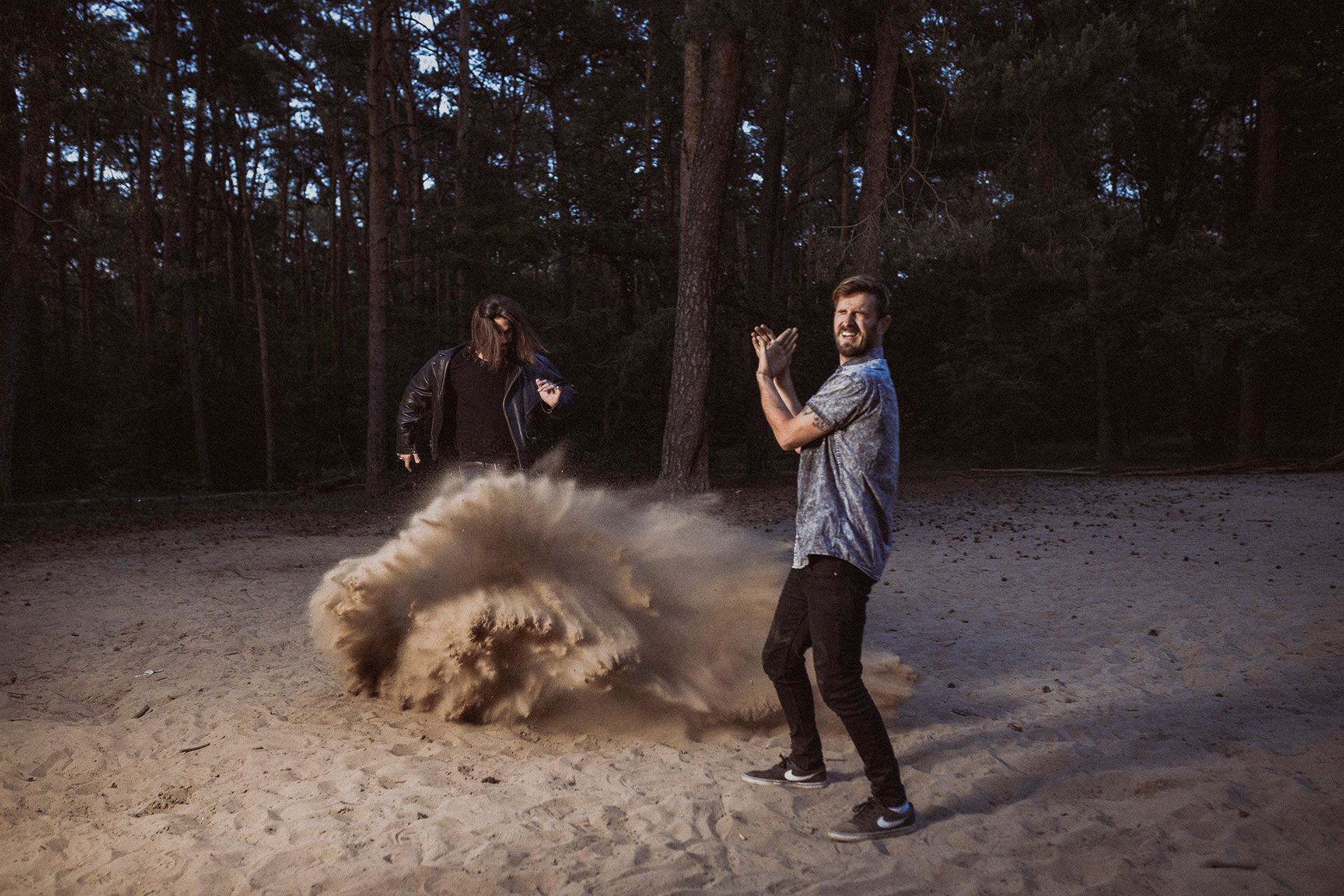
»People fall in love with an idea of you.«
Katharina Weiß:
How did meeting new people change with your rising popularity in the Berlin scene?
Todd James:
A lot of these superficial bonds that you formed with people after they saw you playing in front of a cheering crowd are not real. They fall in love with an idea of you. They think they know who you are—and then they make out with you… (laughing). A lot of people actually think Beranger is a really down-to-earth hippie dude. “He is so humble and connected to the environment,” that was a sentence I once heard. I asked the person: “Who are you talking about, have you ever met Beranger?” The answer was: “No, but I can just tell.” I love to observe these dynamics.
Beranger Gras:
People who see Todd playing naked—looking really cool with his tats on stage—naturally expect him to be this extrovert and a blatant party monger. Which he’s really the opposite, in fact. People see both of us differently.

»A lot of modern music sucks because they are making it for other people.«
Katharina Weiß:
Your entire tour got canceled and, like many musicians right now, you two also might struggle with the question of how to depict the future for the business in the pandemic. How have you personally evolved during these scary months?
Beranger Gras:
I learned that, even if you love what you do, you have to have other things in order to stay grounded. Being a musician is the biggest part of my identity. But there is more to it, even though sometimes I need a reminder for that.
Todd James:
Without being able to go out and play live, a lot of musicians have to go back to simply making music for their own pleasure. I actually hope that, after the lockdown, we will have a lot of new and unique music that resonates with people—because it comes directly from the artists’ inner desire to create. A lot of modern music sucks because they are making it for other people. But if you keep on developing your unique style, you might produce something really awesome.
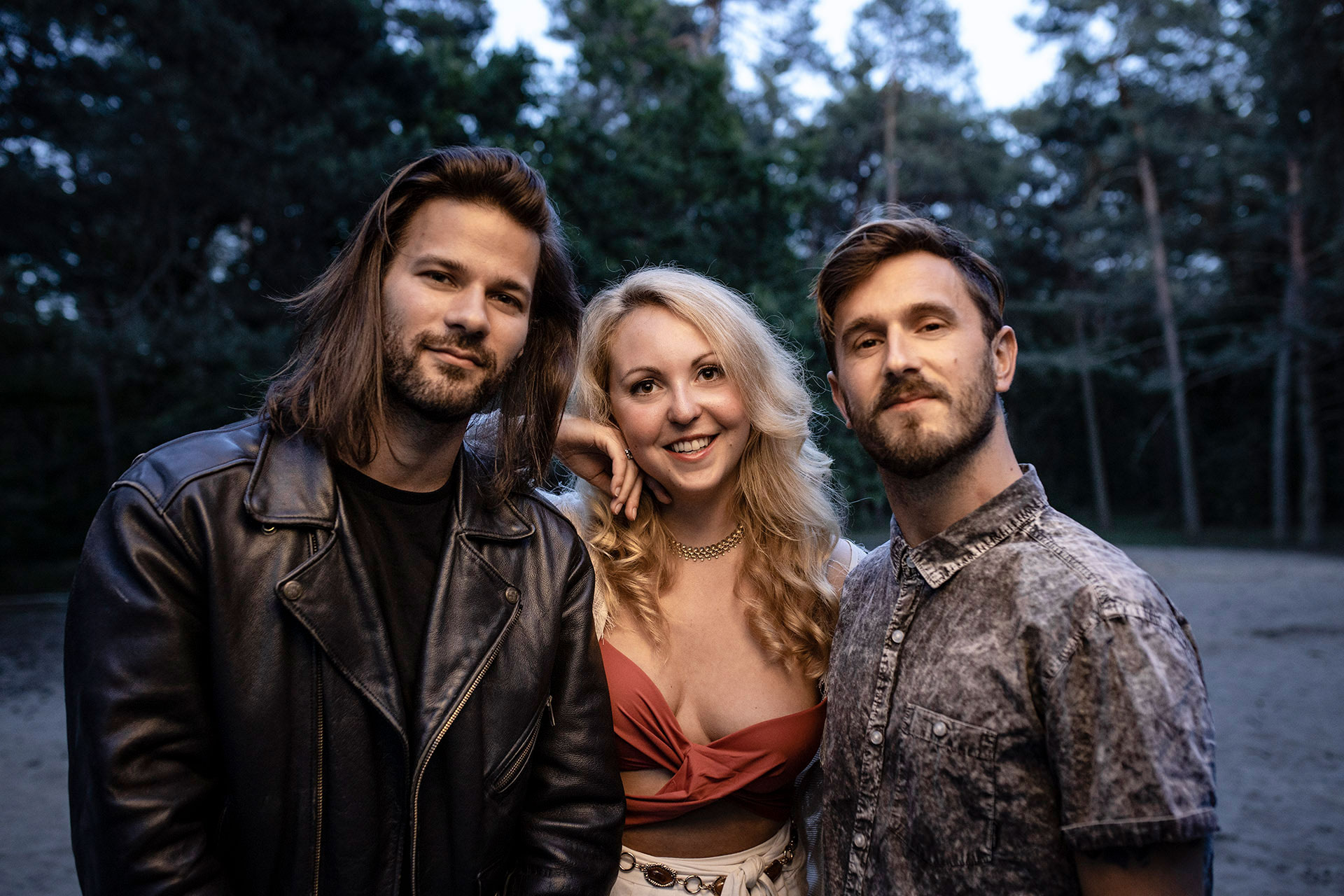
#beranger #community #katharinaweiss #mypmagazine
More about Beranger:
berangerofficial.com
facebook.com/berangerofficial
@berangerofficial
Interview & text by Katharina Weiß:
Photography by Frederike van der Straeten:
